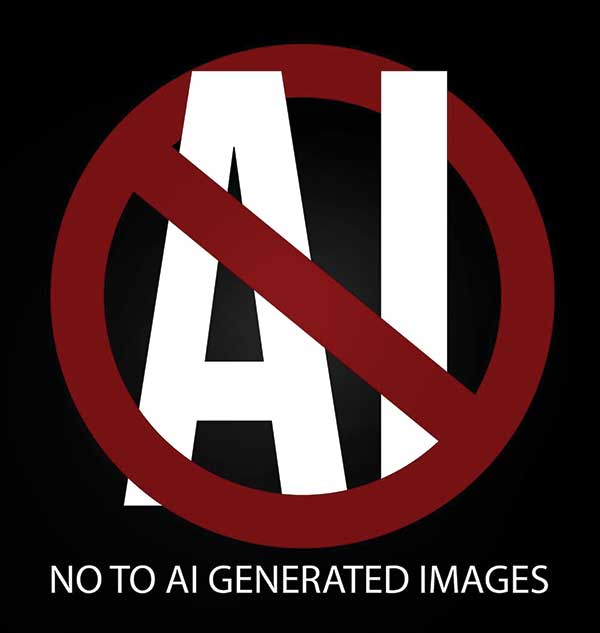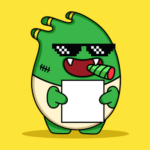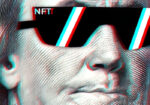
We explore artists’ varied and often conflicting views towards artificial intelligence (AI)-generated artwork. While some artists welcome the use of AI as a powerful tool, many others are rightfully concerned about the potential for AI to disrupt traditional art forms, undermine the authenticity and originality of art, and threaten human livelihoods.
There are critical grounds for why many artists passionately dislike artificial intelligence (AI) and are skeptical of its role in the arts.
Why Artists Dislike AI-Generated Images
- AI disrupts traditional art forms: AI has the potential to severely disrupt conventional art forms and practices. Some artists and professionals view it as a threat to their craft.
- AI Threatens their livelihood: Some artists view AI as a threat to their livelihood because it has the potential to automate specific creative tasks or processes. For example, suppose an artist creates digital artwork using AI tools. In that case, it may be easier for someone else to replicate or copy that artwork, potentially reducing the demand for the original artist’s work.
- There’s a lack of human touch: Artists may feel that AI lacks human contact and emotional depth essential to art. The expression or application of human creative skill and imagination generally creates art. Art is a cultural expression reflecting a particular society or community’s values, beliefs, and experiences.
- AI images lack originality: Some artists may be concerned that AI-generated art needs more imagination and creativity based on algorithms and pre-existing data. For example, an AI system might generate a painting by combining elements from various pre-existing pictures, resulting in a work that needs more originality and uniqueness than a piece created by a human artist.
- AI steals and learns from publicly available imagery. For instance, LAION-5B pulls publicly available images from all over the internet, such as Google Images, DeviantArt, Getty Images, and Pinterest. Dozens of artists have spoken out about no compensation or credit for work that appears in the database. Some allege that the AI learning process is theft. The programs are trained unethically using databases of art belonging to artists who have not given consent.
- Many people are debating ethical concerns: There is massive potential for AI to perpetuate biases and exploit or harm artists. For example, if an AI system creates music sold without compensating the original artist, this quickly raises ethical concerns. The number of disputes over who owns the rights to AI-generated art will increase, which could lead to legal battles and financial costs for artists who use, or don’t use, AI in their work.
- Artists lose control: Many artists are rightfully concerned that AI could take over numerous creative tasks or processes, leading to losing opportunities and control over their work.
Many of our clients are against AI-generated art forms. I personally want to see AI scaled back until better laws and protections for creators are in place and understood. It’s important to note that not all artists are as pessimistic about AI. Many are excited about the potential for AI to enhance and augment their creative work.
Why Some Artists are Excited About AI
- Enhanced creativity: Some artists may view AI as a tool that improves creativity by providing new options and possibilities for their work.
- Time-saving: AI can automate repetitious tasks or processes, saving time and allowing artists to focus on more meaningful aspects of their work.
- Collaboration opportunities: AI can be used to facilitate collaboration between artists, or between artists and non-artists, in new and compelling ways.
- Access to new audiences: AI can open up new avenues for artists to reach and engage with audiences, such as through online platforms or AI-generated art installations.
- Opportunity to experiment: Some artists are excited to experiment with AI and see what art can result by using new tools and technologies.
- Potential for new art forms: AI has the potential to create entirely new art forms that have not been possible or imagined yet, which some artists may find exciting and inspiring.
How Does Copyright Work?
AI-generated art can be protected by copyright, but the specific circumstances will depend on the laws of the country where the art is created and/or disseminated.
Several legal and ethical issues surround the copyright protection of AI-generated art, including questions about who should be considered the “author” of the work and how to compensate artists who use AI in their work fairly. The legal landscape surrounding AI and copyright will likely continue to evolve as AI becomes more prevalent in the arts.
It’s important to note that copyright laws vary from country to country. Always consult a legal professional if you have questions about copyright and AI-generated art.
Conclusion
Artists have diverse and conflicting opinions about using artificial intelligence (AI) in the arts. Some artists see AI as a tool that can enhance their creativity and streamline their workflows, while others are concerned about the potential for AI to disrupt traditional art forms, undermine the authenticity and originality of art, and threaten their livelihoods. The ethical and legal issues surrounding AI-generated art, including the perpetuation of biases, the exploitation of artists, and intellectual property disputes, also raise important questions.


